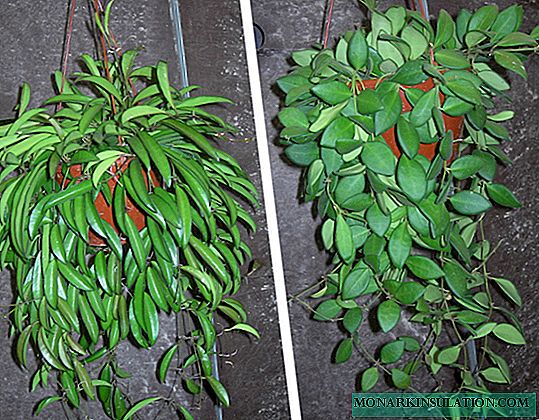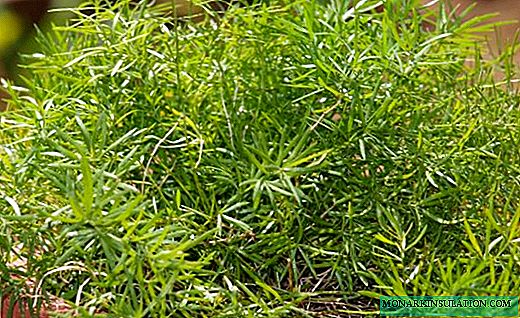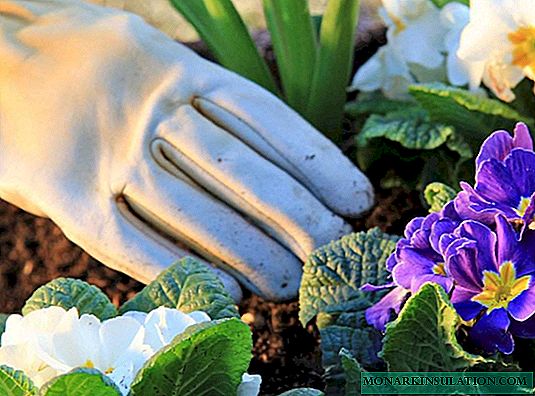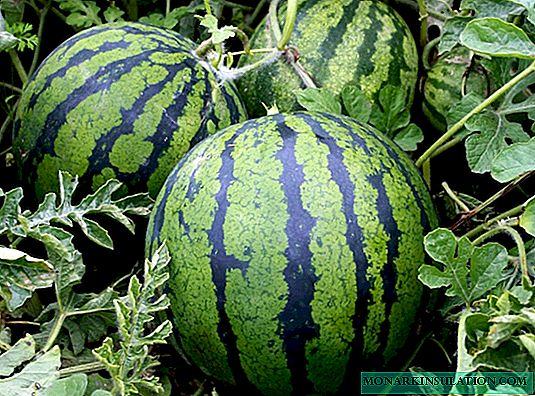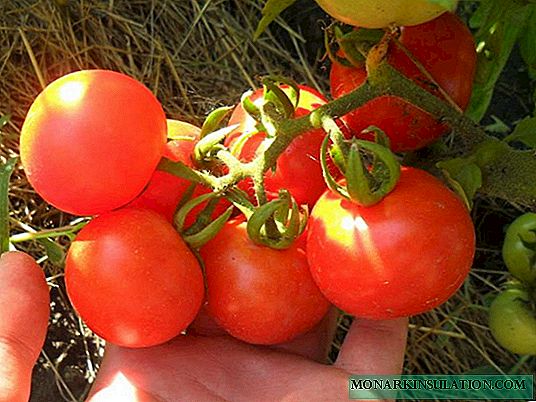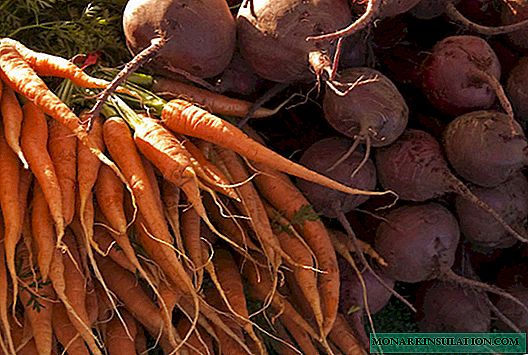Temperature and humidity are the main indicators of the duration of storage of vegetables. At home, they can lie from 2 to 7 months. When creating optimal conditions, carrots and beets can be stored for a year without losing their nutritional and chemical values.

General rules for the storage of root crops
Optimum conditions for long-term storage of root crops vary depending on their type. However, there are general rules:
| Purity | Before laying vegetables, you need to disinfect the room and the containers in which the root crops will be stored. The walls of the vegetable storehouse are whitewashed, covered with lime or treated with a sulfur block. |
| Constant temperature | In the vegetable store, exclude the possibility of a temperature difference with the help of additional thermal insulation. Optimal - 0- + 2 ° С. Deviation in one direction or another will result in spoilage of vegetables. |
| Root crop preparation | Before laying all the vegetables you need to prepare: sort out, cut the tops, dry. |
| Regular monitoring | It is required to monitor the condition of vegetables throughout the shelf life. Root crops, on which traces of damage will be noticed, are subject to seizure. Rotting from one will spread to all nearby. |
Proper storage of carrots at home
Preserving carrots in winter means preserving its appearance, taste and beneficial properties.
Carrots can be stored for a long time:
| In a plastic bag | 3 to 4 months |
| In a drawer without filler | Seven months |
| In a box of wet sand | 9 months |
| In a box with sawdust, chalk, clay | 12 months |
Such a period is possible if the basic storage rules are observed:
- Long-ripened varieties of carrots are stored for a long time: Queen of the Autumn, Flaccoro, Vita Longa, Karlena. Their ripening period is 120-140 days. Some mid-season varieties are also well stored.
- Dig carrots in late September - early October. By this time, it will mature well and prepare for winter storage.
- Dry the roots before laying in the shade, avoiding heating.
- Immediately after digging, remove greens. If this is not done, the tops will begin to draw nutrients from the root crop. Trim with a knife 2 mm above the head of carrots. Powder the cut area with chalk to protect against fungi.
- Large root crops are selected for storage, without skin flaws, without signs of disease.
- The storage temperature of carrots is from 0 to + 2 ° C. With its decrease, the root crop freezes, after thawing it becomes soft, cracked, not suitable for food. With an increase, there is a risk of rot, mold.
- Humidity in the storage is maintained close to 97%. At this level, the freshness of carrots is preserved for a long time.
In the cellar
In a previously prepared cellar, carrots are stored for storage in various ways. Some of them are simpler, others are more complicated.

In a plastic bag
The easiest way to store carrots is in a bag. A polypropylene bag without a liner, which can be purchased at a hardware store, is best suited. In the absence of this, you can use ordinary polyethylene.
It is important that it is not tightly closed.
Polypropylene bags are made of interwoven fibers, so they let air through. A plastic bag will have to be punctured in several places.
In the ridge
This method involves simulating the beds on a shelf in the cellar. For this, a plastic film is spread. A layer of sand mixed with fallen leaves and sawdust is poured on it. Next, the carrots are laid out, so that between the root crops a small space remains. Then they are pressed a little inward. As a result, root crops are completely immersed in the substrate, but do not touch the film. From above, the ridge is covered with polyethylene and sealed with brackets or clothespins.
In an enameled bucket
An enameled bucket is used to store carrots in a cellar with high humidity.
To do this, you need:
| Prepare capacity | It should be clean, roomy enough, have a lid, be enameled. |
| Prepare root crops | Trim the tops, dry them, clean them of dirt, and select those without cuts or other wounds. |
| Put the carrots. | Spread it in a bucket vertically. Cover with several layers of paper towels. Close the lid and put into the cellar for storage. |
In a drawer without filler
You can store carrots in the cellar in the winter in a plastic or wooden box.
Plastic is good in that it is not subject to decay, the spread of fungi, durable, and is subject to disinfection. After cleaning, the plastic box can be reused.
Wooden - environmentally friendly, do not transmit unpleasant odors to the contents, control the level of humidity in a small range. However, unlike plastic crates, it is better not to use wooden crates for storing vegetables.

Root crops are laid in rows in 2 or 3 layers in a box. In the basement, they should not stand on the floor and not against the wall.
If storage is not supposed to be on a shelf, then an empty box is put on the floor, and on it one by one boxes with carrots, and so how much fits. The top is covered with a lid.
In a filler box
As a filler for storing carrots can be used:
- wet sand;
- sawdust;
- onion peel;
- a piece of chalk;
- salt;
- clay.
With the exception of the last option, the vegetables are laid in layers: filler - root crop - filler. It is possible to store 2-3 layers in one box.
To prepare the clay filler, it is necessary to saturate the clay with water for several days.
As a result, by consistency, it should become close to sour cream. The box must be lined with film or parchment, put the carrots in one layer, pour clay.
The solution should envelop the whole root crop. When the layer hardens, put another one on top and pour again. In such a clay shell, carrots can be stored for a whole year.
In the basement
The cellar is a pit isolated from residential buildings, equipped for storing food stocks.
In contrast, the basement is a floor of a residential or utility building buried more than half in the ground. It can be heated and unheated.
In the basement with heating, long-term storage of carrots is not possible.
If in the basement the temperature during freezing does not fall below 0 ° C and does not rise above + 2 ° C, then you can store carrots in the same way as in the cellar. It is only worth considering that sunlight can penetrate into it. Therefore, you will have to additionally check whether the packaging for light does not allow.
In the apartment
Store carrots in the apartment is only possible in the refrigerator.
There are several ways:
| Entirely in the bottom drawer of the refrigerator | To do this, rinse fresh carrots, cut the tops, dry well, wrap in polyethylene or place in a vacuum bag. |
| Grated in the freezer | Peel fresh carrots, chop them, put them in bags and freeze them. |
If the apartment has an insulated balcony, then carrots can be stored there in the same way as in the cellar. However, due to temperature fluctuations and the inability to maintain the required humidity, it is not recommended to leave it there for a long time.
How to store beets in winter?
It is optimal to store beets (aka beetroot) in the winter in a cellar or in a pit.
In this case, the following conditions must be met:
- regular temperature regime from 0 to +2 ° С;
- humidity from 90 to 92%;
- natural ventilation.
The temperature in the storage should not drop below 0, since frozen beets will not be stored. In case of warming, the tops will begin to sprout, the root crop will wither and lose some of the useful substances.
Root crop preparation
Stages of root preparation:
| The first stage begins with the selection of the variety. | The most adapted for long-term storage: Bordeaux, Cardinal, Crosby, Egyptian flat, Mulatto, Tenderness, Dark-skinned. |
| The second stage of beet harvesting is harvesting. | It must be done in a timely and correct manner. It is necessary to dig out beets before frosts, but after full ripening. Vegetation periods are indicated in the variety description. Pulling the root crop from the ground for the tops is not recommended. With this method, the skin is damaged. Microcracks appear, through which beet infection occurs. Use a shovel or pitchfork for cleaning. With a tool, root the roots and gently pull out the tops. |
| The third stage - cutting greenery, removing clods of earth. | The tops are cut with a sharp knife at a height of 10 mm from the root crop. Beets should not be washed before laying. You need to remove only large clods of dirt manually, without using sharp objects. A thin protective layer of earth should remain. |
| The fourth stage is drying. | Before laying, beets must be dried on the ground in clear, warm weather for several hours. If weather conditions do not allow, then dry in a well-ventilated area. It can be laid out in one layer on the floor of the house. In such conditions, the vegetables will dry out for several days. |
| The fifth stage is selection. | Large, healthy root crops without damage to the skin should be stored. |
Beetroot storage methods
You can store beets in the winter in different ways:
| Pit / shoulder | At the cottage dig a hole 1 meter deep. Root crops fall asleep there. Top covered with a layer of straw, sprinkled with earth. For better thermal insulation, another layer of straw and earth is poured. It turns out a hill. In winter, additional snow is poured on top. In the pile, the beets are perfectly preserved, but the method is not comfortable in that for the removal of root crops it will be necessary to dig out and bury the vegetable store. |
| Cellar | In the cellar, beets can be stored in bulk 15 cm from the floor, in boxes, in bags. It is better to sprinkle it with wet sand, chalk, sawdust, salt, wood ash. The main condition: the correct temperature and humidity. |
| Refrigerator | Like carrots, beets can be stored in the refrigerator in the lower drawer, wrapped in foil or baking paper as a whole. You can also chopped in a freezer. |
Useful Tips
- It is useful to store beets with potatoes, it will give it excess moisture.
- When laying root crops, you can shift them with layers of fern leaves. They secrete volatile, helping vegetables fight fungi and rot.
- Small and large root crops are best stored separately. Use the former first, since the latter are better.
- For storage in the garage or on the balcony, you can make a vegetable storehouse out of the box by thermally insulating its walls and the cover with foam.
- If root crops will be sprinkled with sand, then it should first be disinfected with high temperature in the oven or in the sun.


